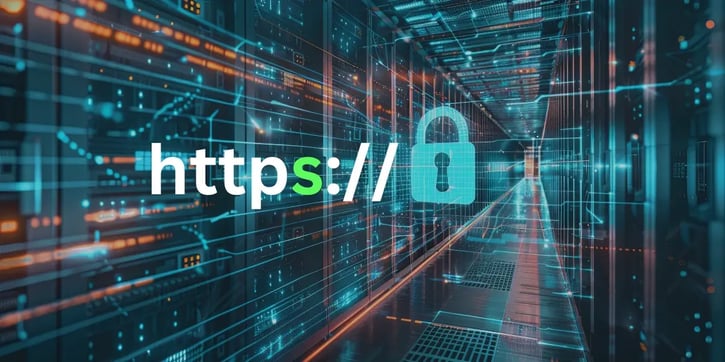What is the Difference Between HTTP and HTTPS?
By emSign Editorial on January 17, 2024

Understanding the Key Differences Between HTTP and HTTPS for Secure Online Interactions
When browsing online, you’ve likely noticed URLs starting with either "http://" or "https://." These may seem like small details, but the distinction between HTTP and HTTPS is critical to the security and integrity of internet communication. As an SSL/TLS certificate authority, emSign is dedicated to helping businesses secure their websites by upgrading from HTTP to HTTPS. Here, we’ll explore the differences between HTTP and HTTPS, why HTTPS is essential for any website, and how emSign can enhance digital trust for businesses and their users.
What is HTTP?
HTTP, or Hypertext Transfer Protocol, is the foundation of online data exchange. It allows the browser to communicate with a website's server, fetching the information needed to display web pages, videos, and other content. However, HTTP by itself doesn’t encrypt the data sent between the user’s device and the server. This lack of security leaves user data like login credentials, personal information, and credit card details open to cyber threats such as eavesdropping, man-in-the-middle attacks, and data tampering.
Enter HTTPS: A Secure Version of HTTP
HTTPS, or Hypertext Transfer Protocol Secure, adds a vital security layer by encrypting data transmitted over the internet. When you see "https://" in a URL, it signifies that the website is using an SSL/TLS certificate to encrypt communication. This encryption protects the confidentiality and integrity of information by scrambling data into an unreadable format. Only the intended server and client can decrypt the data, preventing cybercriminals from intercepting sensitive information.
With HTTPS, users are assured that:
- Their data remains private: HTTPS encryption ensures that sensitive information, such as passwords and financial details, is safeguarded from potential hackers.
- The website is verified and secure: SSL/TLS certificates confirm a website’s authenticity, reassuring visitors that they’re interacting with a legitimate, trustworthy site.
Why HTTPS Matters for Business Websites
Today’s online users are more security-conscious, and most expect HTTPS to be a standard on any professional site. Here’s why HTTPS matters for businesses:
- Building User Trust: Visitors are increasingly aware of security indicators like the padlock symbol or “https” prefix, which signal a secure connection. emSign’s SSL/TLS certificates enable businesses to display these trust indicators, showing customers that their data is secure.
- SEO Benefits: Search engines, like Google, prioritize HTTPS websites, ranking them higher than non-secure HTTP sites. Businesses with HTTPS gain a competitive advantage in search rankings, making it easier for customers to find their services.
- Compliance with Regulations: Many regulations, such as the GDPR and PCI-DSS, mandate data protection measures. HTTPS can help businesses comply with these requirements, protecting sensitive data and avoiding costly fines.
- Protection Against Cyber Threats: As online threats evolve, HTTPS safeguards against many forms of cyberattacks, including man-in-the-middle attacks. Without HTTPS, businesses risk data breaches and the legal implications of compromised customer data.
How emSign Helps Businesses Transition to HTTPS
Upgrading to HTTPS may seem complex, but emSign simplifies this transition with SSL/TLS certificates designed for a wide range of industries. Our robust encryption standards and streamlined installation processes enable businesses to secure their websites quickly and efficiently.
With emSign, your business will benefit from:
- High-Quality Encryption: Our SSL/TLS certificates use strong encryption algorithms, ensuring a secure connection and protecting sensitive data.
- Trust Indicators: emSign certificates enable websites to display the padlock icon, indicating a secure, verified connection that users can trust.
- 24/7 Support and Guidance: emSign’s support team offers assistance throughout the SSL/TLS installation and renewal process, so businesses can stay focused on growth without worrying about website security.
Final Thoughts
In a world where data breaches and cyber threats are increasingly common, HTTPS has become a necessity for any website that handles user data. The difference between HTTP and HTTPS may appear small, but it has significant implications for website security, user trust, and business growth. By investing in an SSL/TLS certificate from emSign, your business not only enhances security but also establishes a foundation of digital trust that keeps users coming back.
Transform your website’s security today with emSign’s SSL/TLS certificates and help protect user data with the encryption it deserves.
